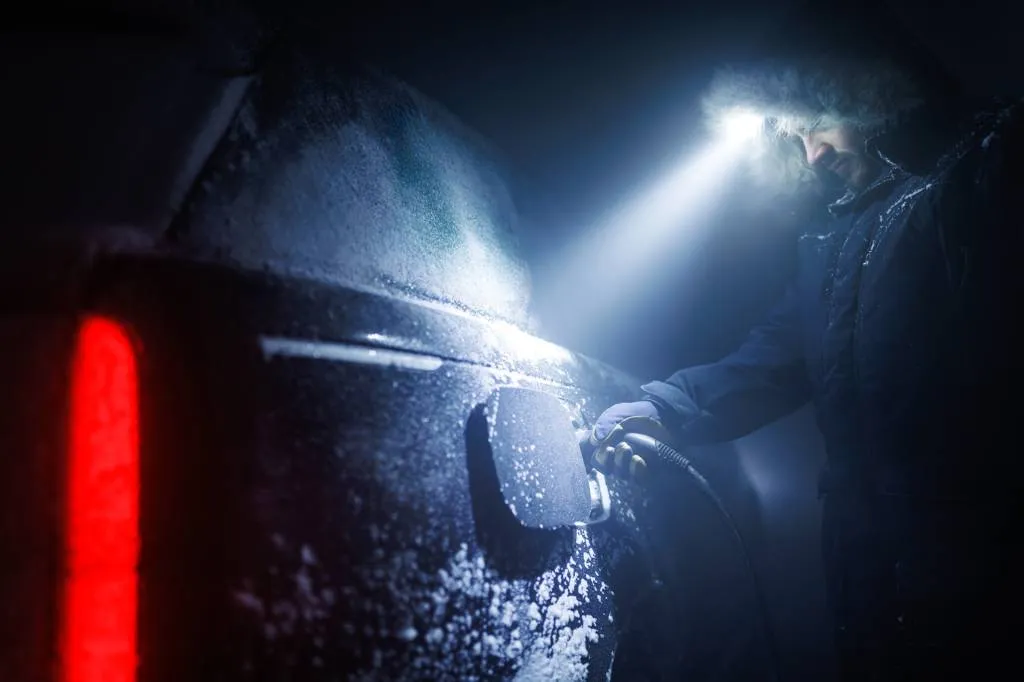Electric vehicles are notorious for reduced range and longer charge times in cold weather, but the upcoming electric Range Rover, to be known as the Range Rover Electric, likely won’t suffer these issues.
JLR is testing prototypes in the extreme cold experienced near the Arctic Circle, where the temperature can drop as low as -40 degrees F. This is to ensure the electric powertrain still meets performance targets in such extreme conditions.
The cold-weather tests also enable engineers to evaluate how the vehicle performs on surfaces offering little grip. The prototypes are tested on frozen lakes which provide precisely reproducible conditions, enabling the engineers to fine tune many chassis systems, including a new traction control system designed exclusively for the vehicle’s electric powertrain.
Instead of the ABS-linked traction control system in JLR’s gas-powered lineup, the Range Rover Electric relies on the control module for the electric motors (JLR hasn’t said how many there are) to manage wheel slip. According to JLR, this reduces the reaction time of the system from around 100 milliseconds to virtually instant.

Range Rover Electric prototype
Extreme heat, which can also dampen performance of EVs, is also being addressed with testing taking place in the deserts of West Asia, where temperatures reach above 120 degrees F.
The Range Rover Electric uses a modified version of the MLA (Modular Longitudinal Architecture) platform underpinning the gas-powered Range Rover. The electric version of the platform features an 800-volt architecture, meaning extremely quick charge times will be possible when using a DC fast-charger. Support for over-the-air updates and apps designed to help maximize range will also be included.
On the outside, there will be very little to tell the two versions apart, as the prototypes show.
Reservations for the Range Rover Electric are already being taken and a debut is scheduled for later this year. Additional EVs from JLR will follow in quick succession. The first of a new generation of electric Jaguars will arrive in 2025, and an electric successor to the Range Rover Velar is also expected that year.
